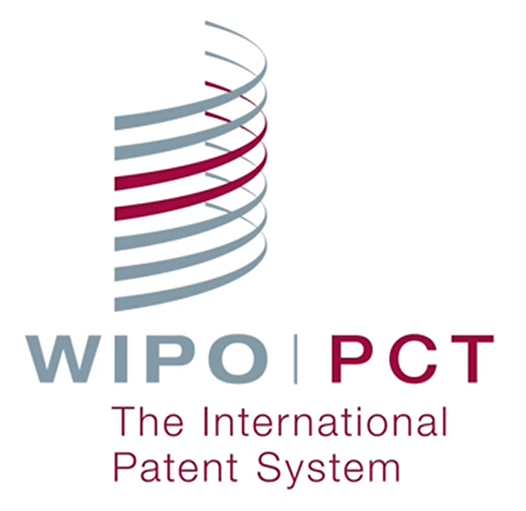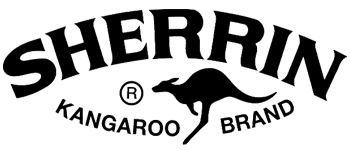
Last week was full of exciting discussions on the blog. Praharsh wrote on the Delhi High Court’s Division Bench order staying the operation of the Single Judge’s direction in Vifor “Product by Process Claims” case and on the Oppositions Status Report filed by the Trademark Registry before the Delhi High Court. Mathews discussed the Delhi High Court’s order directing for strict interpretation of the PCT timelines while filing the national phase applications. We also had guest posts by Rahul Bajaj on Delhi High Court’s pragmatic approach while granting an interim injunction in the Modern Foods case, and by Varsha Sharma on Delhi High Court’s order regarding retrospective interpretation of TM 2017 Rules.
Anything important we’re missing out on? Drop us a comment below!
Highlights of the Week

A Division Bench Stays the Directions in the Vifor v. MSN Labs ‘Product by Process Claims’ Order
Product-by-Process remains a vague concept as a Division Bench of the DHC stays the previous order, halting the launch of generic FMC once again.
Trademark Registry Files Latest Data on Oppositions Before the Delhi High Court
The Trademark Registry filed its status report, as directed by the DHC earlier, disclosing the number of oppositions filed and disposed of. Praharsh writes on the status report, highlighting why clarity is warranted in the data, considering that oppositions are not only an important part of trademark prosecution but also help in crystalizing claims against infringement later on.
Other Posts

The DHC ruled that timelines for filing national phase applications cannot be extended, in light of India’s reservation to the PCT Regulations on this. In an incisive post, Mathews argues that the DHC’s ruling is too broad and ignores the cutoff date (in 2003 – 13 years prior to the amendment of the Rules) for placing the reservation within the country’s Patent Rules.
Gazing at Substantive vs Procedural Rights in the Light of SAP Se vs Swiss Auto Products and Anr

A Single Judge of the DHC disagreed with the decision in Mahesh Gupta v. Registrar and referred the question of retrospective applicability of the TM 2017 Rules to a Division Bench. Varsha Sharma offers a contrary view, arguing that the court’s presumption that amendments to procedural laws will apply retrospectively cannot be accepted when it impacts the substantive rights of the trademark applicants.
Modern Foods v. Modern Snacks: A Pragmatic Approach to Trademark Infringement Suit Injunctions
The Delhi High Court recently issued an interim injunction order restricting the defendant’s use of the ‘Modern’ trademark to its existing products. In this short post, our former blogger Rahul Bajaj highlights the Court’s rationale and its pragmatic approach to striking a balance between the plaintiff’s right and the defendant’s long use of the impugned mark.
Case Summaries
Patents
Delhi High Court clarifies that affidavit in support of evidence is a must for documents filed along with the post grant opposition to be regarded as evidence.

Case: Akebia Therapeutics Inc v. Controller General of Patents on 9 August, 2023 (Delhi High Court)
The Delhi High Court illustrated the prescribed process to file a post grant opposition within the Indian Patent Act and Rules and set aside the recommendations of the Opposition Board. The court held that the respondent’s filing of affidavit in support of the evidence on a later date, after the plaintiff has filed its written statement in response to the post grant opposition will prejudice the interest of the plaintiff. Emphasizing on the importance of the accompanying affidavit under 79, the court directed to treat the earlier documents filed by the Respondent no. 3 as evidence, in light of the subsequent affidavit, and allowed the petitioner to file additional evidence in response thereof. After this, it directed the Opposition Board to consider the matter de novo.
Considering the confusion in the manner of citation of prior art documents, the Delhi High Court remands the matter back to the Controller for fresh hearing.
Case: Dow Agrosciences LLC vs The Controller of Patents on 7 August 2023 (Delhi High Court)
The petitioner filed an appeal against the impugned order rejecting its patent application for Stabilized Agricultural Oil Dispersions. There were various reasons for refusing the application including lack of inventive step. The appellant argued that the prior art documents cited by the respondent are wrong and few incorrect references have been made in the impugned order. Considering the confusion in the manner of citation of prior art documents, the court remanded the matter back to the respondent for fresh hearing.
Delhi High Court allows Anjali Technoplast to manufacture impugned honey combs for government organizations, asks it to deposit INR 25 lakhs to safeguard the interest of the plaintiff.
Case: Econcore vs Anjali Technoplast Ltd. on 4 August, 2023 (Delhi High Court)

The Plaintiff filed a suit seeking permanent injunction against the defendant from infringing its patent on “Folded Honeycomb and process for producing the same.” The defendant argued that the competing products are different and it relies on prior art to manufacture its products. Conversely, the plaintiff argued that the competing products are identical. However, the plaintiff also admitted that it is not manufacturing honeycomb panels in India and sales figures of its products are miniscule. The court considered non-use of the plaintiff’s patent, the plaintiff’s willingness to license its technology in India, Ministry of Defence being one of the clients of the defendant and defendant’s intent to supply its honeycomb panels only to the government and allowed the defendant to manufacture and supply its honeycomb panels to any governmental body. However, the court passed the above direction subjected to the condition that the defendant files a complete account of sale on a six monthly basis and deposit INR 25 Lakh with the court.
Trademarks
Delhi High Court clarifies that Google cannot seek protection under the safe harbour provision for using trademarks as keywords.
Case: Google v. DRS Logistics (P) Ltd. & Ors on 10 August, 2023 (Delhi High Court)

In an appeal against the order of the single judge bench, a Division Bench of the Delhi High Court held that the appellant cannot seek the safe harbour exemption u/s 79 of the IT Act and using trademark as a key word would amount to “use” of that trademark under the Trademarks Act. The court however, clarified that the use of a trademark as a key word per se would not amount to an infringement as it does not identify the source of the goods or services, and for it to be seen as an infringement of the mark, confusion, dilution or compromise of the mark has to be established by the complainant.
Considering that word marks have already been registered in the specific class, the Delhi High Court set aside the impugned order rejecting the application to register the “India News” device mark.
Case: Information Tv Pvt Ltd vs Registrar of Trade Marks on 7 August 2023 (Delhi High Court)
An appeal was filed against the impugned order rejecting appellant’s device mark u/s 9. The appellant argued that its word mark “India News” has been registered under the same class however, the respondent has rejected its “India News” device mark citing Section 9. Without going into the merits of the case, the court set aside the impugned order and directed the respondent to grant registration to the subject device mark.
Delhi High Court allows the defendant to file rectification applications against the petitioner’s “Rubber Module” Logo and “Peeling Hands” device and allows Plaintiff no. 2 to stay in the array of parties.
Case: Roxtec AB & Anr vs Sukant Chakravarty & Ors on 7 August, 2023 (Delhi High Court)

An application u/s 124 was filed by the respondent seeking permission to file rectification/ cancellation petitions against the registered trademarks of the plaintiff. The respondent argued that the trademark attempted to monopolize the rubber module logo, a slogan, ‘We Seal Your World’, and a device mark, ‘Peeling Hands’. Specifically, regarding the ‘rubber module logo’, the defendant argued that the same is common to the trade and cannot be monopolized. The court allowed the respondent to file rectification petition for the ‘rubber module logo’ and ‘peeling hands’ device, holding that the latter is an artistic depiction and does not distinguish plaintiff’s goods from those of the defendant. For the ‘We seal your world’ slogan, the court held that registration is granted not on individual words but on the entire slogan and the defendant can use these words in a disjunctive manner. The defendant had filed another application seeking deletion of plaintiff no. 2’s name from the array of parties. The defendant argued that the suit at the instance of the above plaintiff is not maintainable unless the license/ assignment is registered with the design office. The court rejected the application holding that the said plaintiff is impleaded not as a registered proprietor of suit designs but as a subsidiary to establish sales and extent of plaintiff’s business in India.
Delhi High Court clarifies that in case of prima facie trademark infringement, injunction must follow, unless the use of the impugned mark predates the use and registration of plaintiff’s mark.
Case: Paul Components Pvt. Ltd. v. Hi Tech Pvt. Ltd. on 9 August, 2023 (Delhi High Court)
The Plaintiff filed a suit seeking permanent injunction against defendant’s use of ‘HTA’ and ‘ARS-HTA’ marks. The plaintiff has registration over HTA word mark and device whereas defendant has no registration over the impugned marks. The court granted an interim injunction to the plaintiff and observed that ordinarily in case of prima facie trademark infringement, injunction must follow, unless the use of the impugned mark predates the use and registration of plaintiff’s mark. However, in the present case the user date of the defendant’s mark (1985) was subsequent to the user date of the plaintiff’s HTA mark (1977) and thus the present injunction order was passed by the court.
Delhi High Court allows an application seeking to cancel registration of “Sherrin” in the name of the defendant.
Case: Russel Corp Australia Pty Ltd. vs Shri Ashok Mahajan on 8 August, 2023 (Delhi High Court)

The petitioner sought cancellation of the respondent’s No. 1 registered trade mark “Sherrin.” The court allowed the application and held that the respondent’s mark “Sherrin” is identical to the plaintiff’s mark. The court also took note of the fact that the plaintiff has adopted its mark 140 years ago and has sourced its products to India. The court further held that the respondent’s adoption of the mark is barred under Section 29(3) and Section 11 as even though the plaintiff’s mark is not registered, it is protected under laws of passing off considering respondent’s adoption of the identical mark. Additionally, the court also took note of the fact that the respondent was a habitual squatter of well known trademark and allowed the application.
Delhi High Court restrains the defendant from using “Novakind” and “Defzakind” marks. Holds them to be deceptively similar to the Plaintiff’s “Mankind” mark.
Case: Mankind Pharma Ltd. v. Novakind Bio Sciences Pvt. Ltd on 7 August, 2023 (Delhi High Court)
The plaintiff, registered proprietor of “Mankind” mark, filed the present suit seeking injunction against use of “Kind” marks by the defendant in its “Novakind” and “Defzakind” marks. The defendant contended that it is not using “Novakind” as a mark but rather as a corporate name. The court rejected the above contention and held that the use of “Novakind” by the defendant fits the definition of a mark under the Act and held that the impugned marks are deceptively similar to the plaintiff’s mark and passed the present order, granting interim injunction to the plaintiff.
Other IP Developments
International IP Developments
- SEO Powered Content & PR Distribution. Get Amplified Today.
- PlatoData.Network Vertical Generative Ai. Empower Yourself. Access Here.
- PlatoAiStream. Web3 Intelligence. Knowledge Amplified. Access Here.
- PlatoESG. Automotive / EVs, Carbon, CleanTech, Energy, Environment, Solar, Waste Management. Access Here.
- PlatoHealth. Biotech and Clinical Trials Intelligence. Access Here.
- ChartPrime. Elevate your Trading Game with ChartPrime. Access Here.
- BlockOffsets. Modernizing Environmental Offset Ownership. Access Here.
- Source: https://spicyip.com/2023/08/spicyip-weekly-review-august-7-august-13-2.html



